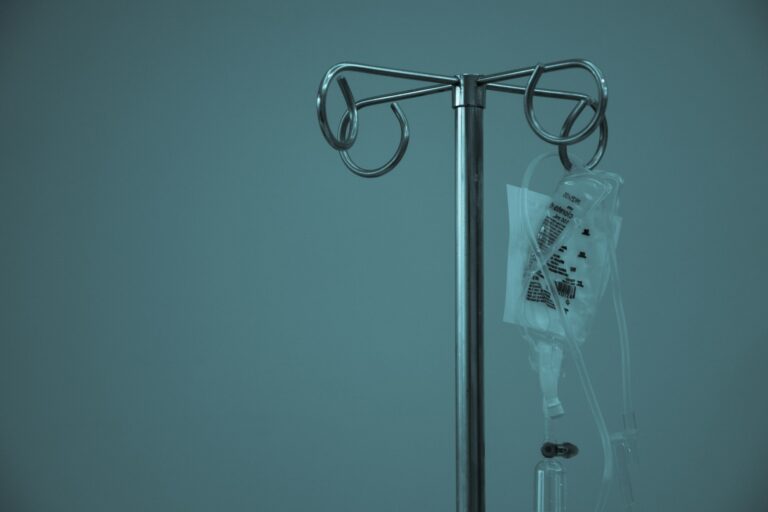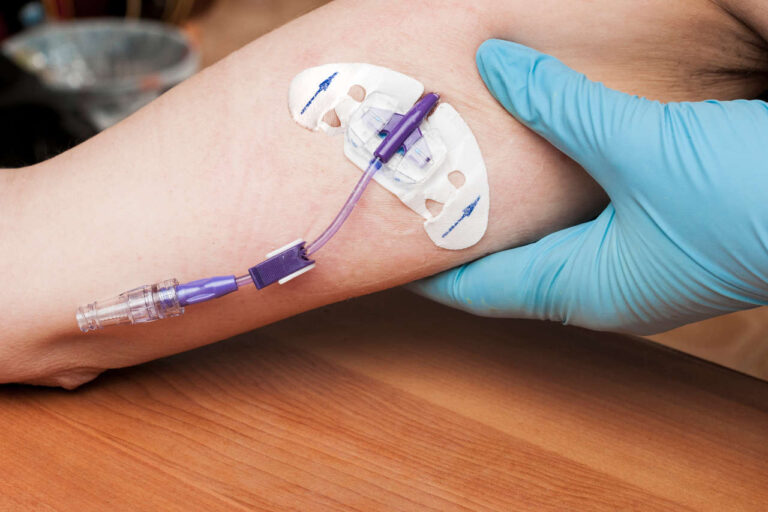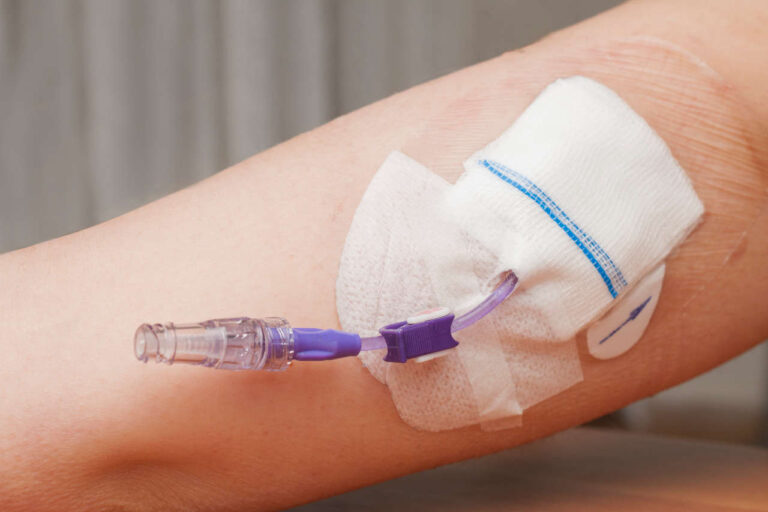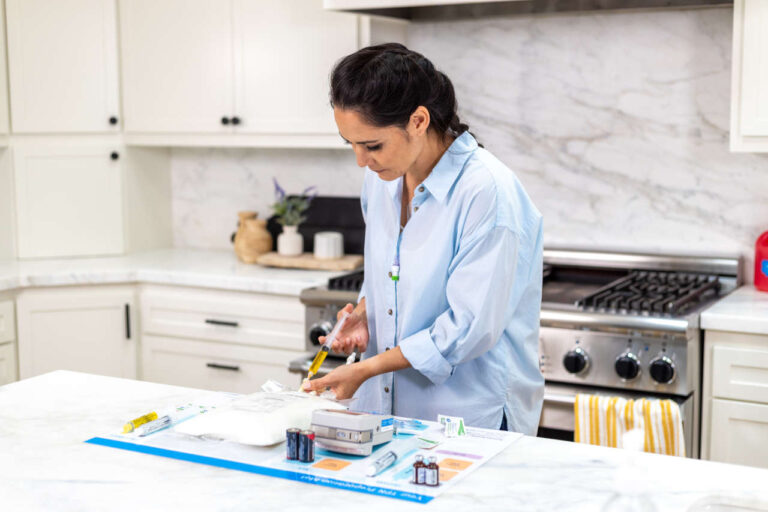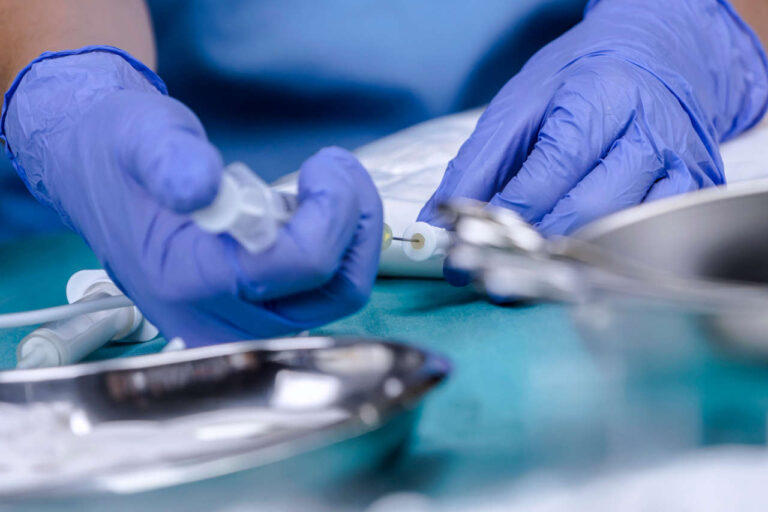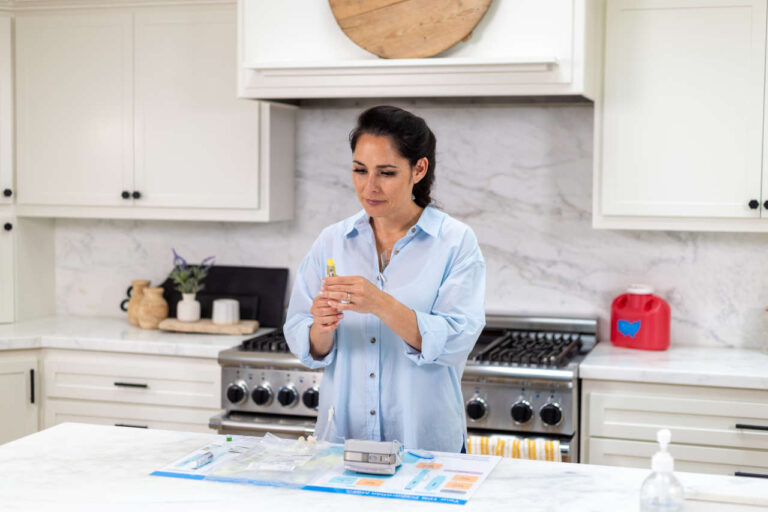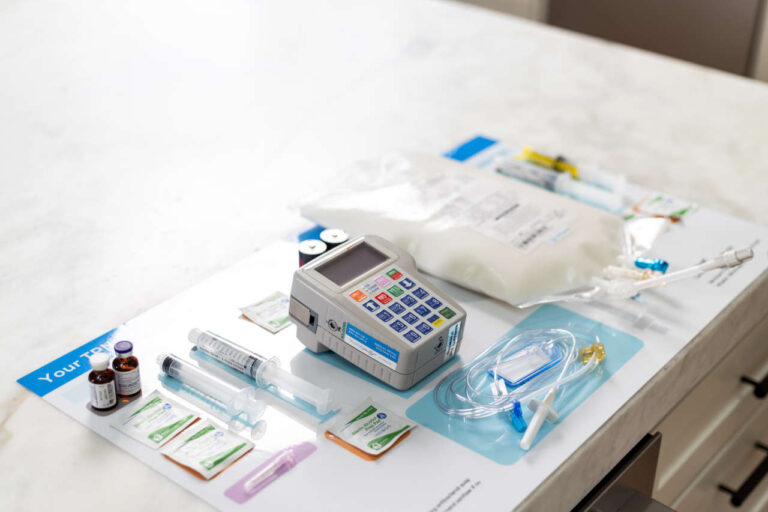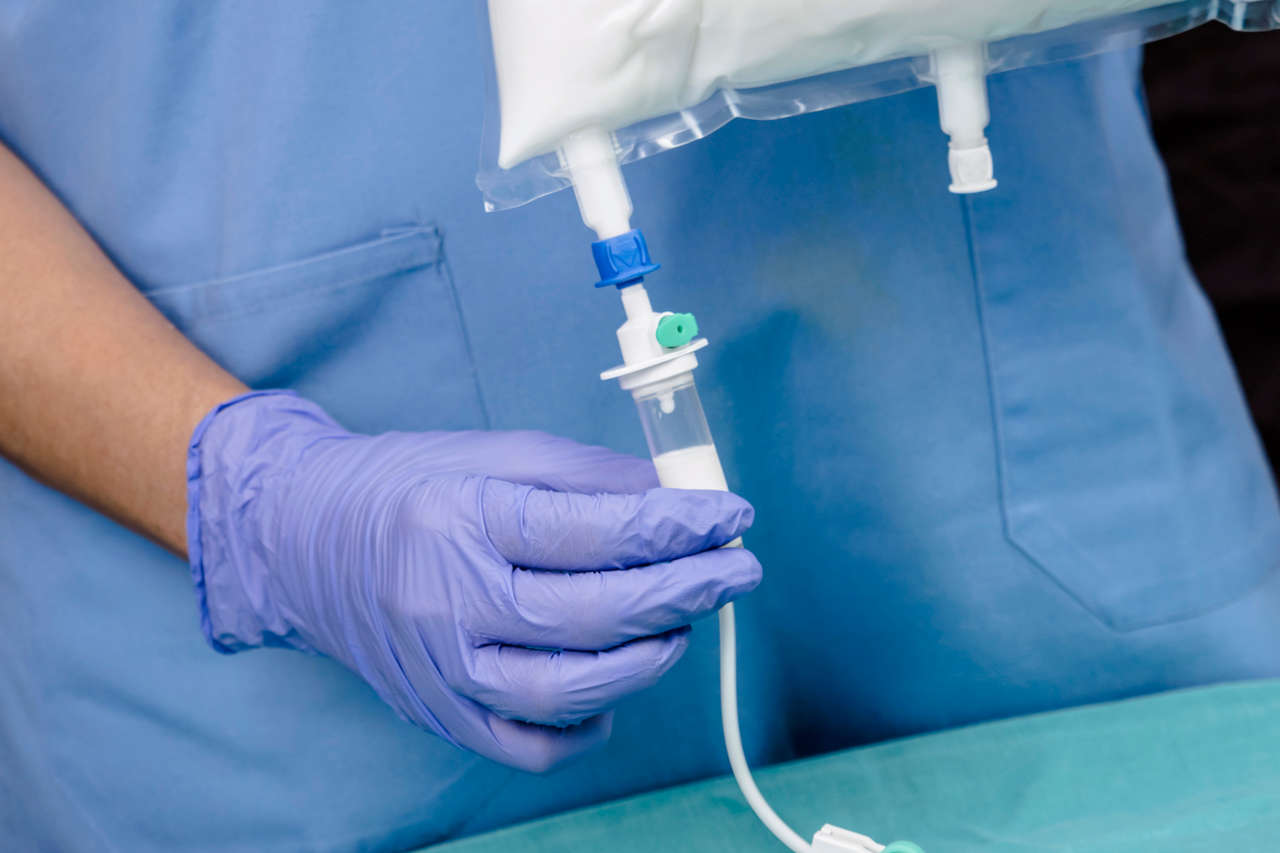
If you or your loved ones require total parenteral nutrition (TPN), it is crucial to understand the vital components of this nutritional therapy. TPN solutions contain a balanced mixture of macronutrients (such as carbohydrates, lipid emulsions, and proteins) and micronutrients (such as vitamins, minerals, trace elements, and electrolytes). These nutrients are essential for growth, development, metabolic activities, and overall well-being.
Your IV Fluids, Always Available
Full inventory, hassle-free accessTPN solutions are carefully formulated by clinicians in consultation with a dietitian to meet your daily metabolic and nutritional requirements and support your overall health and recovery.
In this article, we have explained the key components of TPN solutions, why these nutrients are essential, and how they support an individual’s health.
Composition of TPN Solution
The amount and composition of TPN solution can vary from patient to patient depending on their energy requirements, age, body weight, fluid status, electrolyte balance, and clinical history. A standard TPN solution bag contains about 1 to 2 liters of solution with various ratios of macronutrients, micronutrients, water, electrolytes, and additives such as medications.
Water
Water is a crucial component of TPN solution as it serves as the base for mixing the various macronutrients, micronutrients, and trace elements. It basically provides the medium for delivering the essential nutrients directly into the patient’s bloodstream.
The water used in TPN solutions is typically sterile water for injection (SWFI) or bacteriostatic water for injection (BWFI), which ensures that the solution is free from contaminants. The amount of water added to the TPN solution depends on the patient’s fluid requirements, which are determined based on factors such as age, weight, medical condition, and fluid balance needs.
Typically, the water content in TPN solutions ranges from 70% to 85% of the total volume.
Macronutrients in TPN Solution
Macronutrients are the major components of TPN solutions and include carbohydrates, proteins, and fats.
Carbohydrates
The main carbohydrate used in TPN solutions is dextrose monohydrate, which is a form of glucose. Glucose is an essential energy source for your body and is utilized in almost every cellular activity. Typically, 60% – 70% of TPN calories provided to your body come from dextrose.
In a TPN bag, the standard solution contains up to 20 to 25% of dextrose, but it could also be present in various concentrations, ranging from 40 to 70%, depending on the patient’s energy requirements.
The maximum requirement of carbohydrates for an adult is 500 grams per day, and high concentration of carbohydrates often leads to hyperglycemia and hypertriglyceridemia.
Proteins
Amino acids are the building blocks of proteins, and they play a crucial role in tissue repair, immune function, and enzyme production. TPN solutions contain a mixture of essential and non-essential amino acids except arginine and glutamine. The concentration and composition of amino acids can range from 2% to 15% amino acid content in the solution.
The maximum daily requirement for a healthy adult is 0.8 to 1 gram of protein/kg.
The concentration of amino acids is tailored based on the patient’s specific needs, body weight, and health status. For instance, if the patient is critically ill, needs temporary protein restriction, or has chronic renal failure, then 0.6 to 0.8 grams of protein/kg/day is given. While in the case of hemodialysis, 1.2 to 1.3 gm/kg is given to patients daily.
Fats
Fats in the form of lipid emulsion are used to prevent the deficiency of essential fatty acids such as omega-3 fatty acids and omega-6 fatty acids. Lipid emulsions are typically composed of soybean or safflower oil and are essential for cellular structure, hormone production, and vitamin absorption.
Typically, 25% to 40% of TPN calories are from fats. The usual daily requirement for a healthy adult is 1 to 2 grams/kg/day, and the maximum dose should not exceed 2.5 grams/kg/day.
Micronutrients in TPN Solution
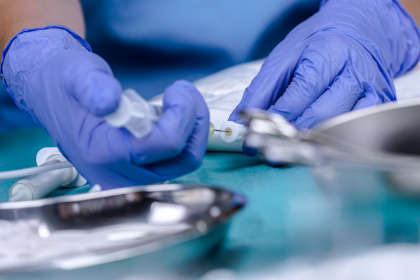
TPN solutions also include a range of micronutrients, which are necessary in small quantities for various physiological functions.
Vitamins
TPN solutions contain a comprehensive mix of water-soluble and fat-soluble vitamins, including vitamins C, vitamin B-complex, vitamin K, and vitamin E. A TPN solution is often yellow in color due to the addition of multivitamins. These vitamins are essential for cellular metabolism, antioxidant defense, blood clotting, and other vital processes.
The concentration or dosage of vitamins is adjusted in the TPN solution according to the recommended daily requirement.
Speak to a Specialist
About Copay AssistanceMinerals, Trace Elements, and Electrolytes
Other important components in TPN solutions are minerals (such as calcium, potassium, phosphorus, and magnesium), trace elements like zinc, copper, selenium, and chromium, and electrolytes. These minerals are involved in bone health, nerve function, enzyme activation, and many other biological processes.
The standard recommended concentration of these trace elements in TPN solution is as follows:
- Zinc: 5 mg
- Copper: 1 mg
- Chromium: 10 mcg
- Manganese: 0.5 mg
- Iron: 1 – 2 mg
The electrolytes recommendation per liter of parenteral nutrition is:
- Sodium: 100 to 150 mEq
- Magnesium: 8 to 24 mEq
- Calcium: 10 to 20 mEq
- Potassium: 50 to 100 mEq
- Phosphorus: 15 to 30 mEq
The amounts of these components are carefully determined based on the patient’s individual requirements and monitoring of electrolyte levels.
How Is TPN Solution Prepared?
Healthcare providers prepare TPN solutions according to specific guidelines and protocols based on each patient’s individual nutritional needs. The TPN bag or container includes a concentrated solution of carbohydrates and amino acids, while the lipid emulsion can be mixed in or administered separately depending on the patient’s requirements. Vitamins, electrolytes, and trace elements come in separate vials or ampules and are added to the TPN bag using a syringe.
All the components are carefully measured and mixed in the appropriate proportions according to the prescription.
Follow our step-by-step guide for preparing and administering TPN solutions.
Conclusion
In summary, TPN therapy is a critical medical intervention for patients who are unable to meet their nutritional needs through oral intake or the digestive system. TPN contains a balanced mix of macronutrients, micronutrients, fluids, and electrolytes to fulfill the patient’s daily body requirements and maintain proper physiological functions.
REFERENCES:
- Maudar, K. (1995). TOTAL PARENTERAL NUTRITION. Medical Journal, Armed Forces India, 51(2), 122-126. https://doi.org/10.1016/S0377-1237(17)30942-5
- Hamdan, M. (2022b, July 20). Total Parenteral Nutrition. StatPearls – NCBI Bookshelf. https://www.ncbi.nlm.nih.gov/books/NBK559036/#:~:text=TPN%20is%20a%20mixture%20of,emulsions%2C%20proteins%2C%20and%20dextrose





